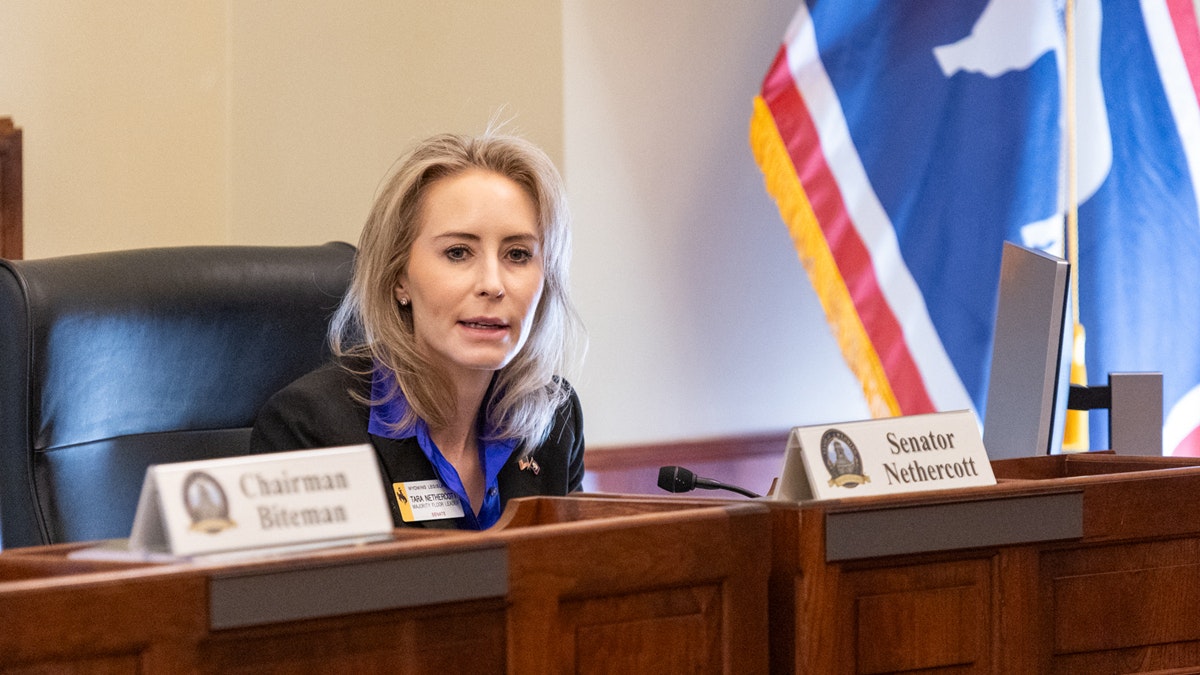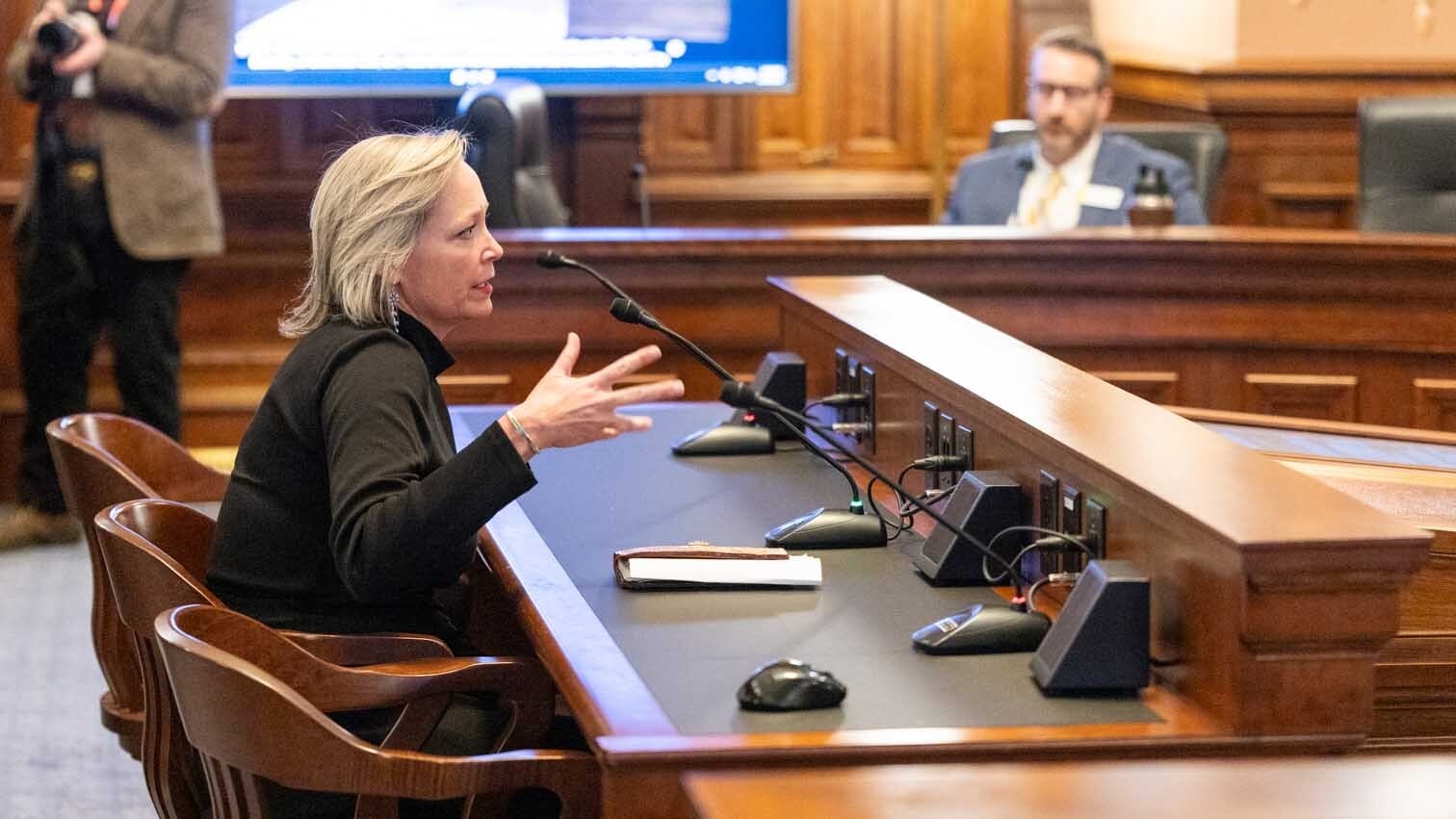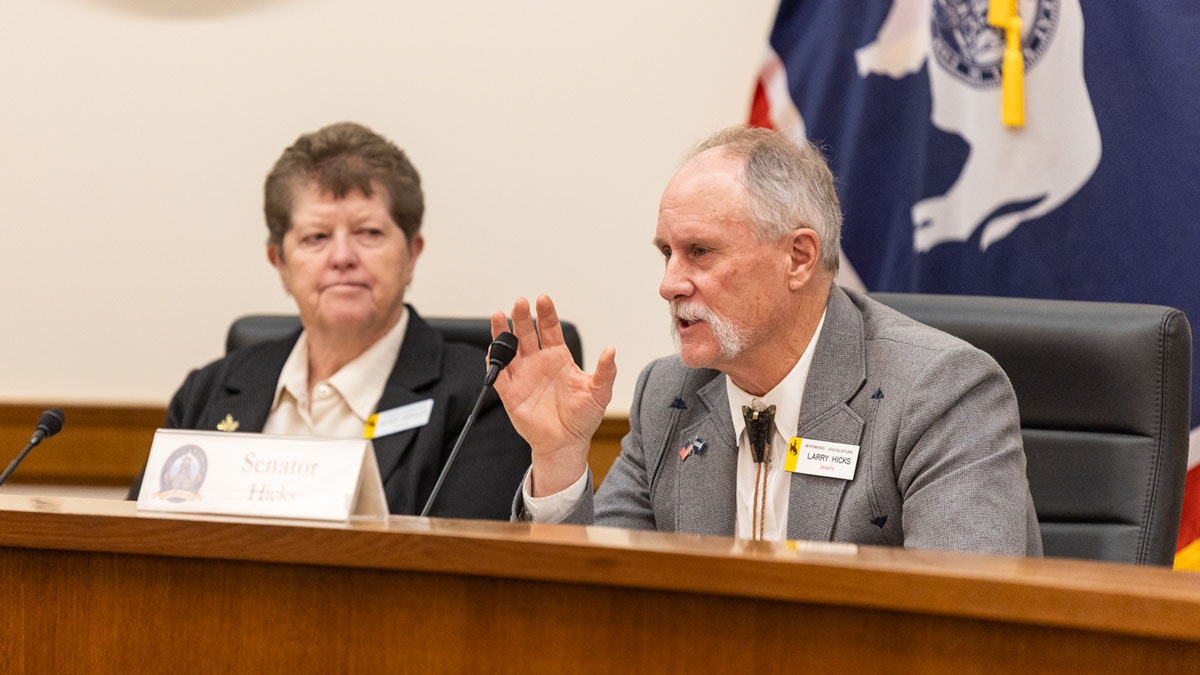Wyoming’s two abortion bans are unconstitutional and will be blocked from being enforced, a Jackson-based judge ruled Monday.
Teton County District Court Judge Melissa Owens concluded a year-and-a-half lawsuit Monday with a summary judgment order declaring that abortion is health care, Wyoming’s two abortion bans violate a state Constitution provision promising health care autonomy, and the Legislature’s reasoning did not overcome that right.
Owens then blocked the law from going into effect.
The plaintiffs who sued to block the bans include an abortion clinic, an abortion support group, an obstetrician/gynecologist, an abortionist and two women in their childbearing years. They sued the state of Wyoming and Teton County authorities in March 2023.
It was the second lawsuit in a series after the same plaintiffs sued the state the previous July over an earlier version of the abortion bans that went into effect after the U.S. Supreme Court overturned Roe v. Wade in 2022.
One of the bans would have outlawed nearly all abortions, with exceptions for rape, incest and serious risks to the mother’s health; the other would have outlawed the marketing of chemical abortion drugs with some exceptions.
Owens blocked them temporarily soon after the lawsuit was filed, so they have not been implemented in Wyoming at any point. Abortion has remained, and for the foreseeable future will remain, legal until viability in Wyoming.
Judge Says Abortion Is Health Care
The plaintiffs brought numerous constitutional challenges to the ban but one showing of unconstitutionality is enough, Owens wrote in her summary judgment order.
The Wyoming Constitution says each competent adult has a right to make his or her own health care decisions.
That’s a provision the state’s voters enacted in 2012, in response to an Obama-era health insurance program, colloquially called “Obamacare.”
Regardless of what the voters intended with that constitutional amendment, it now protects abortion.
“The Court finds that ‘health care’ includes professional services for medicated and surgical abortions whether the pregnant woman is physically well or unwell,” wrote Owens. She rebutted the Legislature’s findings that abortion is not health care, saying legislative findings are useful but not binding.
She cited other areas of Wyoming law defining health care, and she ultimately rejected Wyoming Attorney General Deputy Jay Jerde’s argument that abortion is not health care because pregnancy is not a disease.
About Her ‘Own’
Jerde also had argued that the word “own” is vital in the Wyoming Constitution. A competent adult has a right to her “own” health care decisions, but Jerde argued that it’s not just the woman’s “own” decision, it also implicates her fetus.
Owens rejected this as well.
“The Health Care Amendment does not prohibit a person from making their own health care decision if their decision impacts any other person,” she wrote.

But Which Test?
When a state law threatens a fundamental right, the law can only survive if the state can prove it achieves a compelling governmental interest and is narrowly tailored. That test, the most rigorous of court tests, is called strict scrutiny.
These bans don’t pass strict scrutiny, Owens ruled.
“The Abortion Statutes fail to accomplish any of the asserted interests by the State,” she wrote.
Those interests included respecting prenatal life at all stages, protecting maternal health and safety, eliminating barbaric medical procedures, preserving the integrity of the medical profession, mitigating fetal pain and preventing discrimination.
“The State did not present any evidence refuting or challenging the extensive medical testimony presented by the Plaintiffs,” added Owens, who outlined the plaintiffs’ pro-choice arguments — such as that fetuses don’t experience pain until later in a pregnancy — as convincing.
“The Court find that the State’s interest is not compelling until such time as the fetus is viable and capable of survival outside of the mother’s womb,” wrote the judge. “The Court cannot reconcile how a small group of prenatal cells, such as a zygote, that has only the potential of life, can trump the fundamental right of a living, breathing, pregnant woman to make her own medical decisions.”
She said the state has failed to prove that abortion is less healthy for women than birthing a baby; the bans don’t provide appropriate exceptions for lethal fetal defects; and the bans remove doctors’ ability “to provide ethical, evidence-based care that is in the best interest of their patients.”
She also rebutted the state’s assertion that abortions are gruesome and barbaric, and said the state did not prove that claim.
Not ‘Reasonable And Necessary’
Owens also ran the bans through another test that the Constitution prescribes, the “reasonable and necessary test.” The constitutional amendment says the Legislature may enact health care restrictions that are reasonable and necessary.
The bans don’t pass that test either, wrote Owens.
“(The bans) are not reasonable or necessary to protect the health and general welfare of the people,” wrote Owens. “The restriction begins even at the earliest stages of embryonic development, makes no distinction between a zygote and a fetus, and makes no distinction between a pre-viable and a viable fetus.”
The plaintiffs by providing medical testimony have shown the bans to be unreasonable, the judge ruled.
The called the bans “facially unconstitutional,” which means they’re unconstitutional regardless of the situation or the person to whom they’re applied.
Moving Forward
Wyoming lawmakers and pro-lifers have a few different options going forward.
The state can appeal Owens' ruling to the Wyoming Supreme Court. Or the state Legislature can try to pass a different ban that shows a compelling government interest, narrowly tailored.
Or, the Wyoming Legislature and the voters can pass a new constitutional amendment, either banning abortions or specifying that abortions are not health care.
Gov. Mark Gordon has openly called for the Legislature to take up the latter option.
Clair McFarland can be reached at clair@cowboystatedaily.com.





